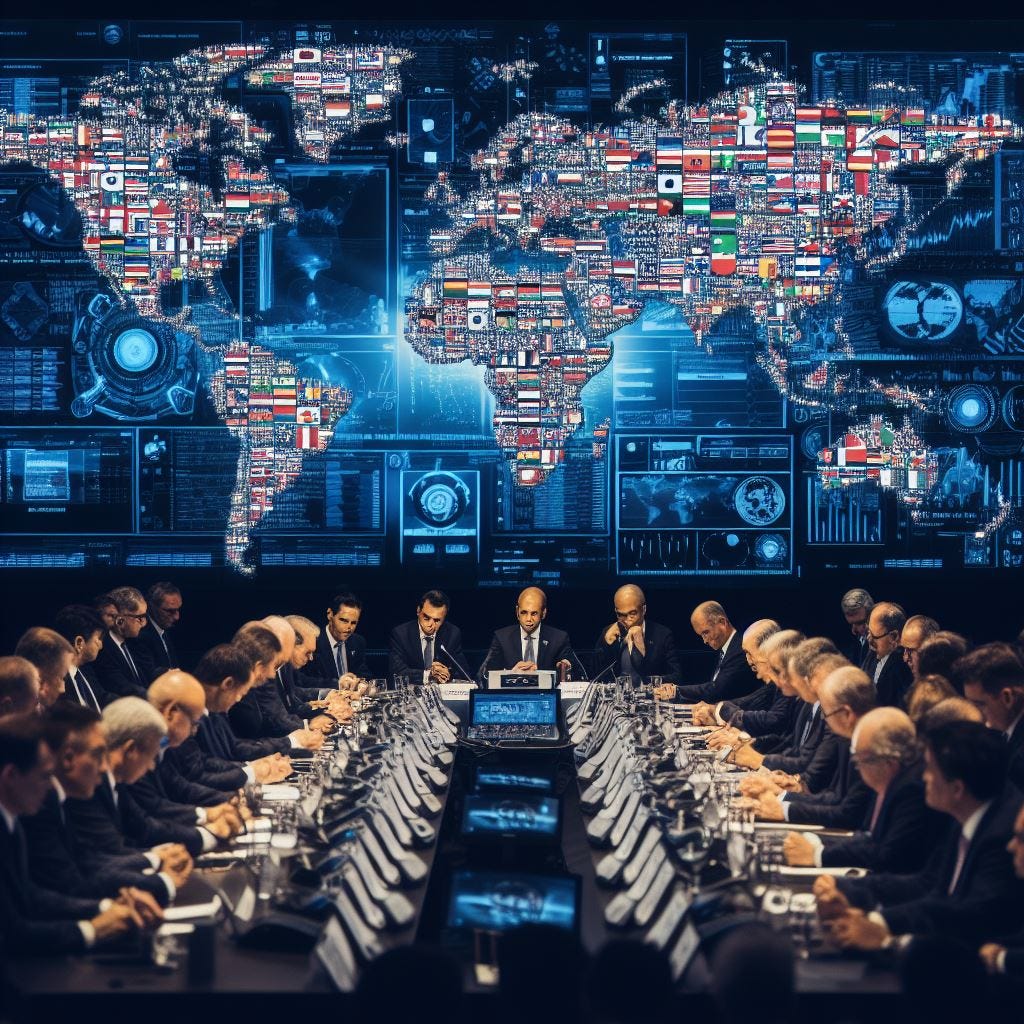The Dawn of a New AI Era?
World Leaders Convene to Chart the Course for AI - What Was Discussed at the Historic Bletchley Summit and What It Means for the Future
This past week feels like a pivotal moment in the development of artificial intelligence (AI) technology and our understanding of its immense power. Top leaders and tech experts from around the world gathered at the historic Bletchley Park in the UK for an inaugural AI safety summit, generating extensive media coverage and attention on where this technology is headed and how we can ensure it is steered in a safe and ethical direction.
The summit resulted in the signing of the new Bletchley Declaration by 28 countries, signaling a commitment to cooperate on AI safety testing, reporting on national security risks, and more. However, as tech expert Dr. Stephanie Hare points out, while an important show of intentions, this declaration does not equate to legally binding legislation. The language of “guard rails” indicates ongoing voluntary measures versus concrete regulations. Hare believes this is a step in the right direction but much more progress is still needed for the public to feel reassured about AI risks being properly addressed.
One of the biggest themes causing concern is the potential for AI systems to be altered and misused for nefarious purposes. A group of scientists revealed to The Times that with simple tweaks to the AI code at Meta, the system readily provided instructions on how to create a bioweapon utilizing the 1918 Spanish flu virus. While Meta's intentions were not malicious, this demonstrates how easily AI could be manipulated for harmful ends. If this manipulation is inexpensive and accessible, preventing misuse becomes extremely challenging.
Unlike tightly controlled nuclear technology, AI systems and source code are difficult to contain. This presents a raging debate within the AI community on whether companies should be compelled to open up their code for auditing and evaluation in the name of transparency and accountability. Opponents argue this sharing jeopardizes trade secrets and intellectual property, while proponents believe it's the only way to fully assess risks. There are intelligent people on both sides of this issue, with no clear resolution thus far.
According to Hare, progress is undoubtedly being made in openly discussing AI safety, with more countries coming to the table than ever before. However, she notes that the US seems to be jumping ahead with concrete action versus ongoing dialog. Vice President Kamala Harris announced at Bletchley the creation of an AI Safety Institute in the US to oversee regulatory issues – but with only 20 employees and a skeletal budget so far, it’s unclear how impactful this institute will be. While President Biden agrees legislation is needed to properly regulate AI, he also recently signed an executive order simply promoting pre-testing of AI systems used by the government.
Pre-testing newly developed AI to flag potential risks is one approach being explored, but some experts doubt how useful this is for exponentially evolving technology. These systems are expected to become smarter and more advanced at breakneck speed. A snapshot of pre-testing today likely has little bearing on capabilities and risks six months from now. And pre-testing does not address AI already integrated into our lives - Hare points out algorithmic harms are already occurring through AI in the civil service, private companies, and beyond. We are all exposed to both current and future AI risks.
An especially poignant moment at the summit was the reading of a tribute poem to Bletchley Park veteran Betty Webb, who just turned 100. Webb worked on Alan Turing’s famous team cracking German codes during WWII. This poem honoring her contributions was authored by none other than AI system ChatGPT, showing just how far technology has advanced in Webb’s lifetime. Imagine what innovations Betty may witness by the time she turns 200! Of course, tech visionaries like Elon Musk aim to be settling Mars long before then.
Musk met with UK Prime Minister Rishi Sunak at the summit for a discussion on AI opportunities and threats. This meeting was hotly anticipated given Musk’s prior warnings of AI’s catastrophic dangers. Fellow summit attendee Pria Lan, founder of AI education company Century Tech, remarked on noticeable excitement around what might be covered in this private discussion between two of the most influential figures in technology and governance today.
So what conclusions can we draw from this historic convening of minds at Bletchley Park? While concrete actions are still lacking, the flames are fanned for an pressing debate on AI safety regulation and ethical development. Having national governments and tech leaders acknowledge the existential risks is progress from silence, but the road ahead remains long. With AI already deeply embedded across our lives, we are well past early intervention. The genie is out of the bottle, so to speak. Now it's a matter of acting quickly and decisively enough to prevent grievous harms.
Unlike the select few who knew of Alan Turing's covert efforts in the 40s, today the entire world is tuned into the AI conversation. We recognize history repeating itself with a new groundbreaking technology that holds equal promise and peril. It is on all of us to learn from past mistakes and approach AI mindfully, ensuring this immensely powerful creation serves humanity’s best interests. While Bletchley Park was the secret birthplace of modern computing 80 years ago, now the opportunity lies wide open for the public to help guide the responsible path forward during this next computing revolution. There is reason for both hope and vigilance as we stand at this crossroads moment for our digital future.








